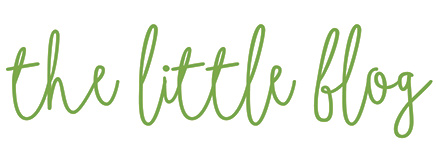Toddlers may not be talking much, but they’re taking in a lot more than you think.

We all talk about our 1-year-olds in front of them. Who doesn’t recount the day’s events to a spouse over dinner or compare kids’ temperaments during playgroup? Since young children tend to be around us much of the time, it would be nearly impossible to save all our child-related chat for naptime or bedtime. And adults often assume that because toddlers aren’t talking much, they’re not taking in what we’re saying. Wrong, say experts. Babies listen. And they understand more than you think.
« There is often a huge difference between receptive language and expressive language at this age, » explains Jean Berko Gleason, Ph.D., a professor of psychology at Boston University and author of The Development of Language (Allyn & Bacon, 1996). « Toddlers can clearly understand complex conversation long before most parents think they can. »
Children start to recognize their names by around 4 1/2 months, so even a young baby may pay more attention if you mention her in conversation, says Kathy Hirsh-Pasek, Ph.D., a professor of psychology at Temple University in Philadelphia and co-author of How Babies Talk: The Magic and Mystery of Language in the First Three Years of Life (Penguin, 1999). By as early as 14 months, children are masters at reading social cues: When we get angry, our voices get louder, our movements jerkier, and our breathing more rapid. By contrast, when we’re happy, we tend to speak gently and softly and to move and breathe more slowly.
In other words, no matter what you say, chances are your toddler gets the underlying message, says Edward Schor, M.D., medical director at the Iowa Department of Public Health, in Des Moines. « If a parent complains about her child taking off his diaper but thinks it was cute, the baby will hear a voice with a nice lilt to it, » he says. « If she’s angry, he’ll pick up on that tone too. »
By the time they turn 1, most babies know about 50 words. Simple nouns that refer to objects or people, such as dog and mama, are usually the first words they learn, followed within the next several months by a few verbs, like hug and kiss, and a nascent understanding of the way words work together in sentences.
Then, at 18 to 21 months, children suddenly launch into what experts call a « language explosion, » learning an average of nine new words a day, and they also begin to understand how word order affects meaning. Once this happens, kids start to figure out not just that you’re talking about them but what you’re saying. For example, if your 20-month-old hears you complain that she pulled the dog’s ears, she’ll probably pick up on her name and the word dog, but now she’ll also realize that you think she did something bad.
Do we need to curtail what we say when toddlers are in the room? « All attention is good to some extent, » says Dr. Schor. « Toddlers whose parents are talking about them lovingly tend to enjoy that focus. » Even if what you’re saying about your child is positive, however, Dr. Gleason believes it’s better not to make a habit of talking as if she weren’t there. « It makes a lot more sense to include a child in your conversation, which will strengthen her linguistic and interactional abilities, than to make her just a passive observer, » she notes. So if you’re telling your caregiver about what your child did the night before, try asking your daughter, « Katie, can you tell Michelle about the puzzle we worked on? »
It’s especially important to keep a lid on negative things you say within a child’s earshot. « If toddlers constantly hear a statement like ‘Ryan’s the quiet one,’ or ‘Todd’s such a bully,’ they may carry it around for a long time and decode it when they’re older, » says Dr. Gleason. In fact, she says, studies have shown that children can learn words or even entire phrases without understanding them and then piece the meaning together at a later date. So if a child often hears herself called a « hitter, » she might take that label on as part of her identity once she learns what it means.
Celia Graham, of Orlando, Florida, learned about the power of labeling with her son Joshua, now 5. « When Josh was a toddler, he went through a phase where he wouldn’t say hello or even respond when people asked him questions, so I explained it by saying, ‘He’s shy,’ » she recalls. She didn’t think he understood, « but as he got older, he started to say the same thing about himself. I felt as if I had stigmatized him. »
Still, even sensitive parents talk about their toddlers in front of them sometimes. Are we doing terrible damage? Of course not, but it pays to be careful. « If you wouldn’t want to have something said in front of you, don’t say it in front of your child, » Dr. Hirsh-Pasek advises. And when in doubt, remember the wise words of Dr. Seuss in Horton Hears a Who!: « A person’s a person, no matter how small. »
Source: we have found this article by Rona Gindin on the website of parents.com.
